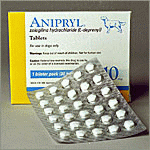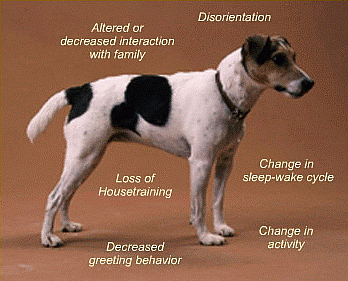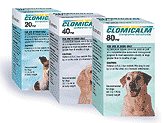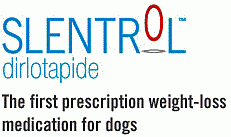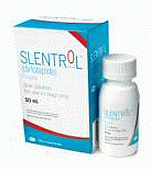|
Researchers believe Cognitive Dysfunction Syndrome (CDS) is caused by physical and chemical changes that affect the brain function in older dogs. Dogs with CDS may show signs of confusion and/or various other behavioral changes that are not a normal part of aging.
This confusion can lead to a life of lonely isolation, separated from family members who have come to cherish their older dog's companionship. This can be as hard on family members as it is on the dog. Pet owners often describe their dogs as less responsive, forgetful or confused.
In a pet owner survey, nearly half of dogs age 8 and older showed at least one sign associated with CDS. |
|
If your senior dog is experiencing one or more of these signs, be sure to call your veterinarian and schedule an examination. What may look like simple aging could be a manageable health condition. Because CDS is a syndrome (a collection of signs), no two dogs will show exactly the same signs.
Anipryl from Pfizer Animal Health is the first and only drug cleared by the Food and Drug Administration to control the signs of canine Cognitive Dysfunction Syndrome. |
View a video on CDS and Anipryl®

|
Pharmacology
 Anipryl (selegiline hydrochloride, L-deprenyl hydrochloride) is an irreversible inhibitor of monoamine oxidase (MAO). In central nervous system neurons, MAO plays a role in the catabolism of catecholamines, (dopamine, and, to a lesser extent, norepinephrine and epinephrine) and serotonin. Therapeutic effects are thought to result in part from enhanced catecholaminergic nerve function and increased dopamine levels. Anipryl (selegiline hydrochloride, L-deprenyl hydrochloride) is an irreversible inhibitor of monoamine oxidase (MAO). In central nervous system neurons, MAO plays a role in the catabolism of catecholamines, (dopamine, and, to a lesser extent, norepinephrine and epinephrine) and serotonin. Therapeutic effects are thought to result in part from enhanced catecholaminergic nerve function and increased dopamine levels.
Anipryl adverse events occurring in at least 2% of dogs in clinical field trials: vomiting, diarrhea, hyperactivity (includes irritability, abnormal repetitive movements, anxiousness, and restlessness), anorexia, neurologic effects (includes ataxia, incoordination, staggering, disorientation, decreased proprioception, and seizure), lethargy, salivation, urinary tract infection, pruritus/dermatologic, weakness, pale gums, polyuria/polydipsia, weight loss, diminished hearing, panting, cardiovascular/respiratory (includes heart murmurs, tachycardia, collapse, dyspnea, pleural effusion, and sneezing), licking.
|

